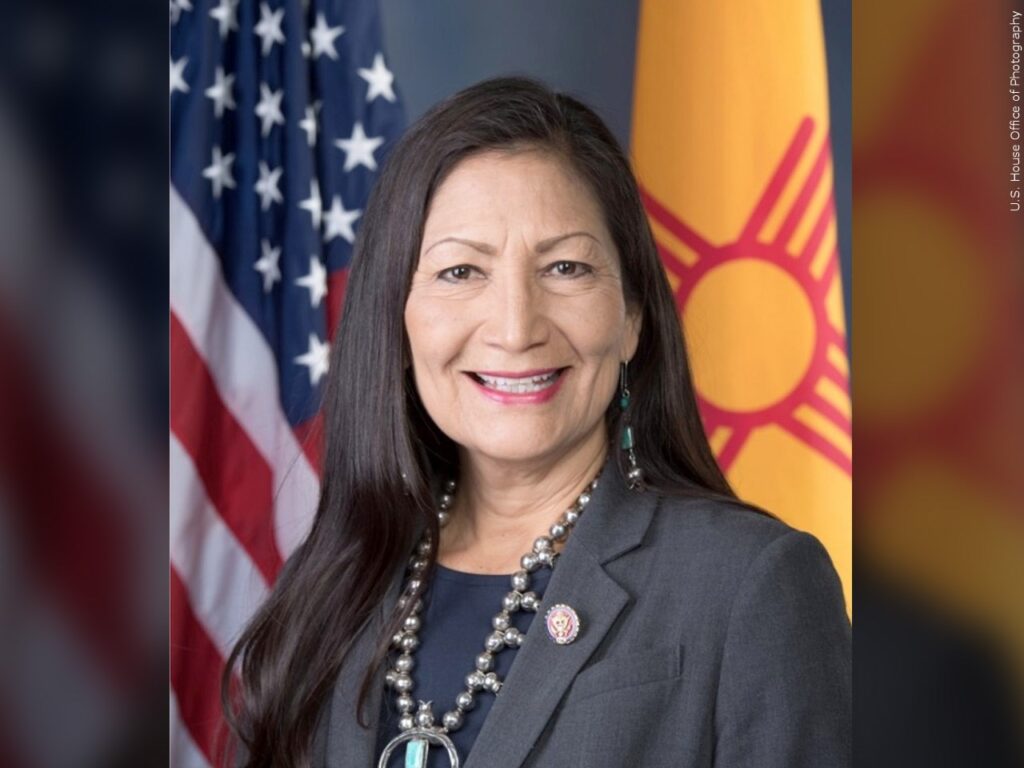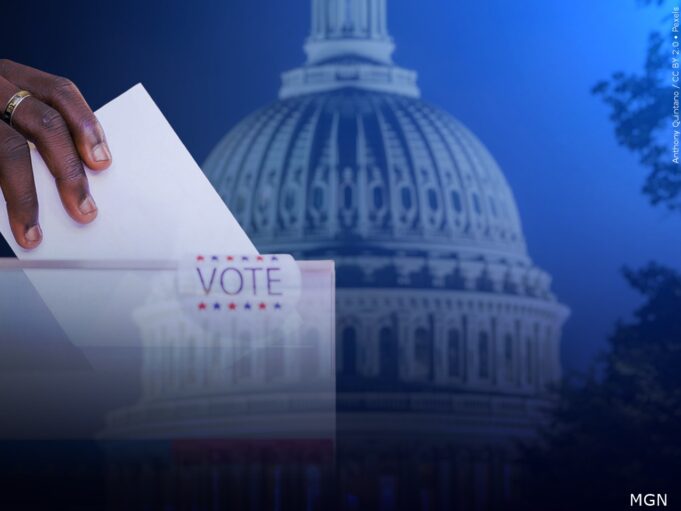by Brett Wilkins
CommonDreams.org
Leaders of the Standing Rock and Oglala Sioux said on Nov. 22 that the two Native American tribes are joining forces in an effort to pressure the Biden administration into a reckoning over a dubious 19th-century treaty that—like just about every other one signed between the U.S. and Indigenous peoples—was broken by Washington.
The two tribes are seeking nation-to-nation consultations between U.S. Interior Secretary Deb Haaland and Assistant Indian Affairs Secretary Bryan Newland—both Native Americans—and the remaining signatory tribes to the Fort Laramie Treaty.
“This is about correcting an injustice,” Standing Rock Chair Janet Alkire said. “For centuries, the U.S. government has broken every promise it’s made to Native tribes. It’s time for that to stop.”
“Furthermore,” she added, “we’re calling on the Biden-Harris administration to take active steps to correct the record.”
Treaty rights remain a critical point of contention for the Sioux, who in recent years have fought against violations of their land, water, and sovereignty, including the Dakota Access and Keystone XL pipelines—the latter of which was canceled by President Joe Biden.

In the 1860s, fierce Indigenous resistance to Euro-American encroachment on the Great Plains and an Army already weakened by the Civil War resulted in a series of U.S. defeats, including a December 1866 ambush led by Lakota, Cheyenne, and Arapaho warriors that killed all 81 soldiers under the command of Capt. William Fetterman during the Powder River War. It was the worst defeat of U.S. forces on the Great Plains until Little Bighorn a decade later.
In 1868, the U.S. signed the Fort Laramie Treaty with the Arapaho and the Dakota, Lakota, and Nakota Sioux. The treaty established the Great Sioux Reservation and designated the Black Hills as “unceded Indian territory” to be “set apart for the absolute and undisturbed use and occupation” of Indigenous peoples.
However, the tribes claim U.S. officials subsequently—and surreptitiously—added language to the treaty stating that the Indians “relinquish all claims or rights” to lands outside the designated reservation. The U.S. then blatantly abrogated the treaty following the discovery of gold in the Black Hills of South Dakota and, when Indians fought back, unleashed a fresh wave of genocidal violence against them.
“U.S. treaty negotiators snuck the relinquishment language into Article II of the treaty after it was signed by the Sioux chiefs to end the Powder River War,” said Oglala Sioux Tribe President Frank Star Comes Out. “We’d like the current government to take an honest look at what happened.”

The Indian Claims Commission, a judicial relations arbiter between the U.S. government and Indigenous tribes, concluded in 1976 that the treaty “effectuated a vast cession of land contrary to the understanding and intent of the Sioux.”
In 1980, the U.S. Supreme Court ruled that the United States had illegally taken the Black Hills and awarded over $100 million in reparations to the Sioux Nation, which refused the money—now worth over $1 billion—on the grounds that the tribe never wanted to part with its lands in the first place.
“The Black Hills are not for sale,” Alkire said on Nov. 22, “and they never were.”
December 5, 2023
New York City’s ban on police chokeholds, diaphragm compression upheld by state’s high court
New York’s highest court on Nov. 20 upheld a New York City law that forbids police from using chokeholds or compressing a person’s diaphragm during an arrest, rejecting a challenge from police unions to a law passed after the death of George Floyd.
The New York Court of Appeals, in a unanimous decision, ruled that the law is clear in its language and that it does not conflict with an existing state law that bans police from using chokes.
The city’s law came as governments across the country prohibited or severely limited the use of chokeholds or similar restraints by police following Floyd’s death in 2020, which occurred as a Minneapolis police officer kneeled on his neck for several minutes.
The Police Benevolent Association of the City of New York, along with other law enforcement unions, sued the city over its law and have argued that its language is vague as to what officers are allowed to do during an arrest. In a statement, John Nuthall, a spokesman for the Police Benevolent Association of the City of New York, said the ruling will provide clarity to officers.
“While this is not the outcome we had hoped for, the Court’s decision is a victory insofar that it will provide our officers with greater certainty when it comes to the statute, because under this Court’s decision, it must be proven at a minimum that an officer’s action in fact ‘impedes the person’s ability to breathe,’ was ‘not accidental,’ and was not a ‘justifiable use of physical force,’” Nuthall said.
The New York Police Department has long barred its officers from using chokeholds to subdue people. New York state also has a law banning police chokeholds that was named after Eric Garner, who was killed when a New York Police Department officer placed him in a chokehold in 2014.
The city’s law, while banning chokes, also includes a provision that forbids officers from compressing a person’s diaphragm. Such a compression, though kneeling, sitting or standing on a person`s chest or back, can make it difficult to breathe. (AP)













